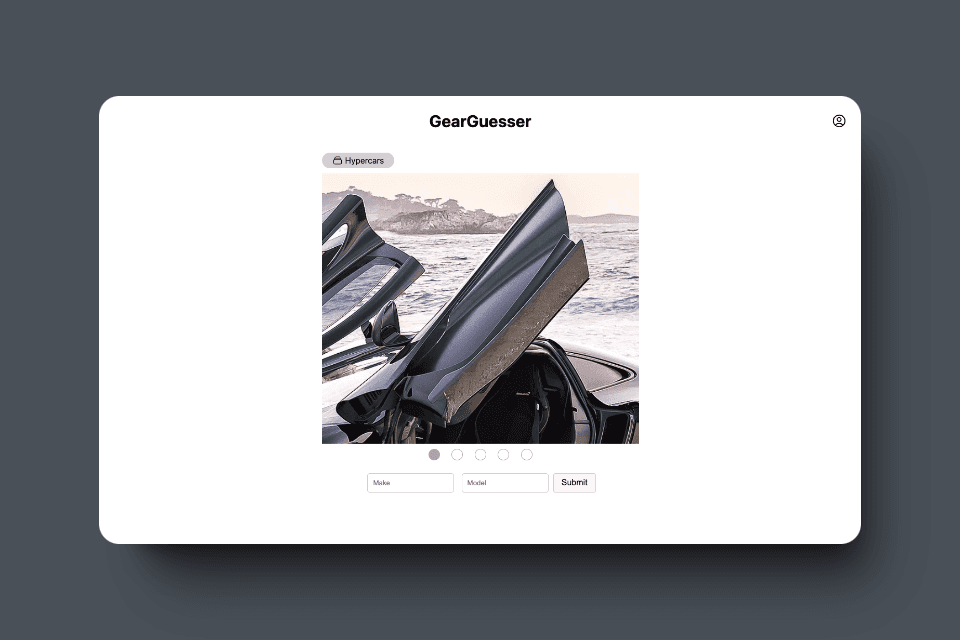GearGuesser is a Wordle-inspired game where you guess the make and model of a car based on a cropped image of the exterior. The game is built for CS 4640 - Programming Languages for Web Applications at the University of Virginia. You can play the game here.
PHP
HTML/CSS
JavaScript
jQuery
Docker
PostgreSQL
Select a category of cars and click 'Start Game'. When the game starts, you will see a cropped image of a car. Your task is to guess the make and model of the car.
Enter your guesses in the "Make" and "Model" input fields and click the "Submit" button.
You can click the "Play Again" button to start a new game.
Your game statistics, such as total games played, correct guesses, fastest guess, and average attempts per game, are displayed on the page.
Learning Outcomes
Building GearGuesser offered a unique opportunity to explore web development through the lens of game design. Reflecting on the project, I gained several valuable insights:
Balancing functionality and performance: Creating an interactive game with real-time feedback required careful attention to performance optimization, especially when handling user inputs and displaying statistics dynamically.
Understanding the user experience: The challenge of making a game both fun and intuitive taught me the importance of user engagement. Fine-tuning elements like game flow and providing helpful feedback for incorrect guesses deepened my understanding of how users interact with web applications.
Leveraging backend technologies: Implementing features like game statistics tracking using Docker and PostgreSQL provided hands-on experience with integrating back-end infrastructure to support a seamless gaming experience.
Iterative problem solving: Debugging and refining the game mechanics helped me build resilience and adopt an iterative approach to problem-solving, improving both the game's functionality and overall user satisfaction.

